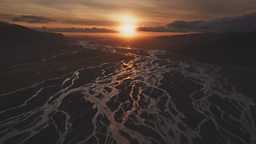Main content
Freshwater: What to expect
the lifeblood of our planet
Freshwater is the lifeblood of our planet – essential for life on Earth. It shapes the land and the creatures that live in it in the most surprising ways.
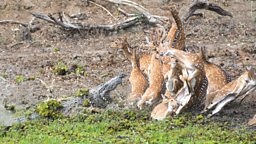
Crocodiles arenβt known for their intelligence, but mugger crocodiles of Sri Lanka have developed an ingenious hunting strategy, taking advantage of the lack of fresh water during dry season. They dig traps at the edge of a waterhole, hide beneath vegetation and wait patiently for thirsty deer to come to drink...
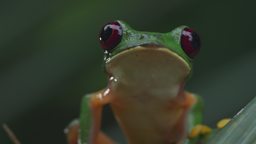
Torrential rain in the jungles of Costa Rica triggers the largest gliding tree frog party on the planet. Up to 10,000 frogs glide down to a single pond to breed. This spectacular event will only last for one day, and with nine males competing for every female, it quickly turns into a breeding frenzy.
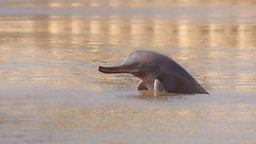
The murky waters of the mighty Indus River in Pakistan are home to the worldβs rarest freshwater dolphin β the Indus river dolphin. There are fewer than 2,000, and they are only found in this one river.
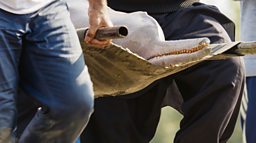
The Indus river supports millions of people, and its waters are used to irrigate an area the size of England. Tragically, endangered Indus river dolphins often become stranded behind the vast networks of dams and need to be rescued.
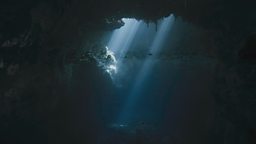
The extraordinary power of flowing water makes it our planet's greatest architect. Hidden under the forest floor of the Yucatan Peninsula in Mexico, it has carved a labyrinth of stunning caves.
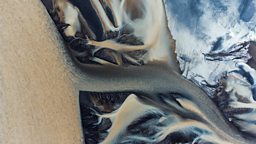
This may look like the surface of an alien planet, but these strange patterns are channels of fresh water flowing towards the sea. Here, glacial meltwater flowing through Icelandβs volcanic landscape has created a mesmerisingly beautiful βbraided riverβ.
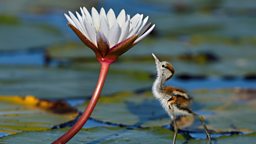
Little trotters (African jacana) time their breeding for the flood waters of the Okavango delta. With their enormous feet they are well adapted for life on the waterβs surface, but the juveniles must learn quickly β danger lurks beneath.
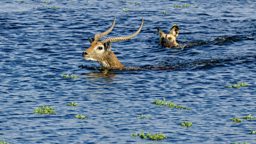
Red lechwe antelope are also well adapted to the flooded Okavango delta, with splayed hooves and waterproof fur; they are excellent swimmers and seek safety in the water. For hungry painted dogs, this creates a problem β they will have to try to drive the lechwe back onto dry land where they have the advantage.
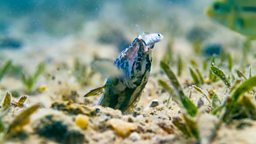
Some lakes have existed for millions of years, providing time for the most incredible animal behaviours to evolve. In lake Malawi, the death-feigning cichlid has perhaps the most surprising way to find a meal β by faking its own death.
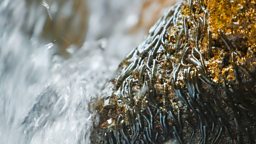
Few can venture into these turbulent waters in Bioko, Equatorial Guinea, but for those who do, there can be great rewards. In search of safe breeding grounds, hundreds of gobies must rock climb up a 30m waterfall. Their mouth part appears to act like a kind of suction cup, but even so, only 1% will survive the climb.
